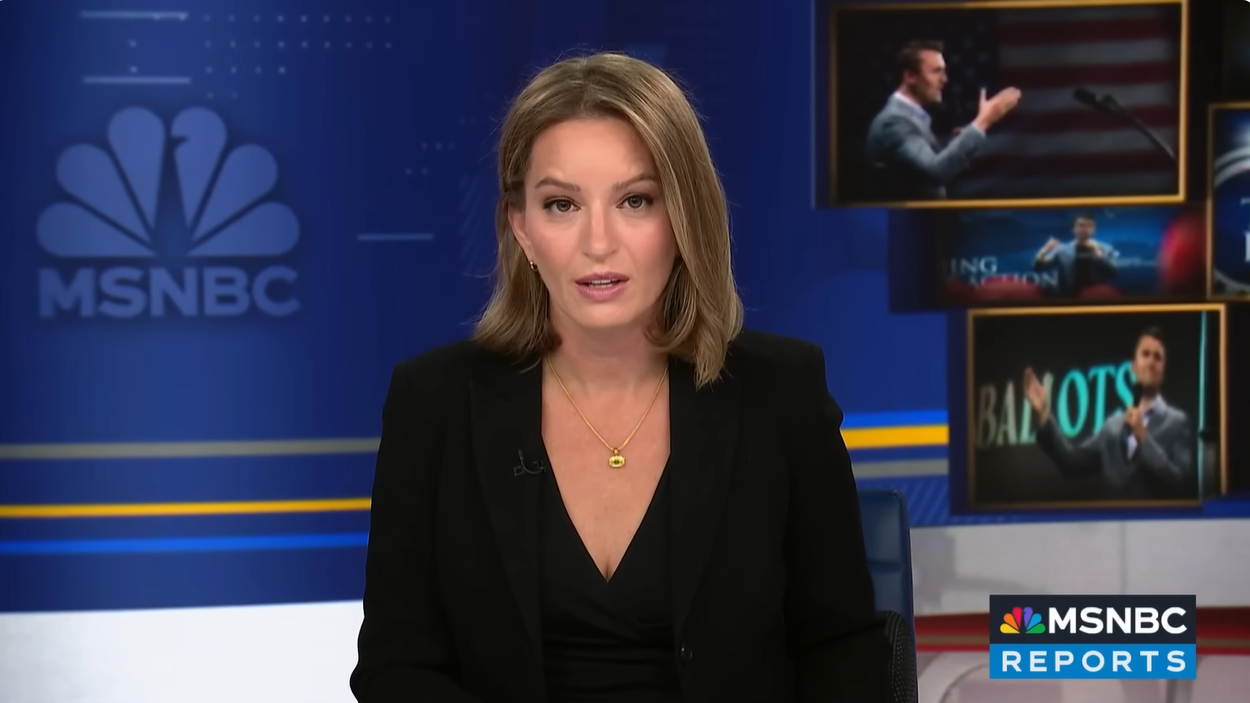Numerous companies, including Pfizer and Procter & Gamble, ran advertisements during a segment of "Katy Tur Reports" on MSNBC, where host Katy Tur and a guest discussed the recent shooting of conservative commentator Charlie Kirk. The segment has drawn criticism for its framing of Kirk's situation and the implications made regarding his rhetoric.
Explainer Charlie Kirk Overview
Kirk was shot on September 10, 2025, prompting a discussion on the show about the political climate surrounding violence against conservatives. During the segment, analyst Matthew Dowd suggested that Kirk's assassination could be seen as a reaction to his divisive rhetoric, stating, "Hateful thoughts lead to hateful words, which then lead to hateful actions."
Following the broadcast, The Federalist reached out to the companies that advertised during the segment, inquiring whether they would publicly condemn the comments made by Tur and Dowd, and whether they planned to withdraw their advertisements from MSNBC. Only one company responded to the inquiry.
P&G's Herbal Essentials stated, "We don’t get to see the final program content, or indeed placement, before our adverts are aired," and added that they support responsible broadcasting. They indicated that the matter would be referred to their brand team for future consideration.
Among the companies contacted were Pfizer, Kenvue (Listerine), The Economist, and AbbVie (Ubrelvy). The Federalist noted that many of these companies did not respond to requests for comment regarding their advertising practices in light of the controversial segment.
Tur characterized Kirk as a "divisive figure" and a "polarizing lightning rod," emphasizing the environment that she claimed contributed to his shooting. She also connected the discussion to broader issues of gun control, stating, "You can imagine the [Trump] administration using this as a justification for something."
Dowd's comments led to his dismissal from MSNBC, with network president Rebecca Kutler acknowledging that his remarks were "inappropriate, insensitive, and unacceptable." However, both Kutler and Tur remain in their positions at the network.
Critics of the segment have expressed concern over the implications drawn from Kirk's shooting and the potential for such narratives to further inflame political tensions. As noted by The Federalist's Shawn Fleetwood, Tur also pondered the political consequences of the violence against conservatives, describing it as part of an "awful, toxic stew" in the current political landscape.
The Federalist was unable to reach a media representative for Greenway Kia, which also advertised during the segment. The lack of responses from the majority of contacted companies raises questions about corporate accountability in the context of controversial media narratives.
As the conversation surrounding Kirk's shooting continues, the implications of media framing and corporate responsibility remain at the forefront of public discourse.
Why it matters
- The segment's framing of Charlie Kirk's shooting has sparked backlash, raising concerns about media responsibility in political discourse.
- Critics argue that the narrative surrounding Kirk's shooting could exacerbate political tensions and violence against conservatives.
- The response from advertisers highlights a lack of accountability in corporate media partnerships, especially during controversial segments.
What’s next
- The Federalist is urging companies to publicly address their advertising choices in light of the segment's content.
- Viewers and critics may push for accountability from MSNBC regarding the handling of controversial discussions.
- Calls for a review of advertising practices during politically charged broadcasts are likely to intensify.

